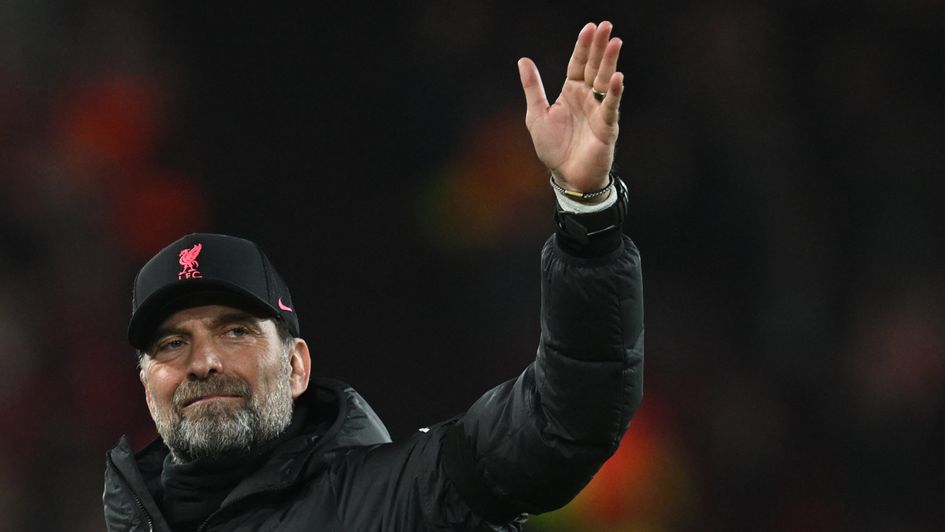For Liverpool the Champions League final has taken on even greater significance after Manchester City won their fourth Premier League title in five years on Sunday.
Pep Guardiola is dominating the domestic scene, and so, for the legacy of the Guardiola-Klopp era - to reflect the closeness of the rivalry – Jurgen Klopp needs to show he is the master abroad.
They are heavy favourites. By any logical assessment, Real Madrid are simply the inferior team in virtually all departments, having scraped through their knockout ties with a mixture of good fortune and force of will – winning matches in short bursts of ingenuity from their more experienced players.
And yet that is the quality, unique to the 13-time winners, that makes Real such dangerous opposition no matter what conclusion we get from rational analysis.
Injuries, too, tip the balance slightly. Liverpool are sweating on the fitness of Fabinho and Thiago Alcantara, which could potentially weaken the one area of the pitch Real Madrid will already feel they hold an advantage.
Fighting Toni Kroos, Luka Modric, and Casemiro without your two best midfielders is always a daunting prospect.
Liverpool dominance and Real counters
The tactical pattern of the match is easy enough to predict.
Under Carlo Ancelotti, Real have tended to sit deeper in Champions League matches in order to carefully absorb pressure before hitting their opponent on the break, with the most extreme example coming in the two legs against Paris Saint-Germain – whose pace Real clearly feared as they dropped back.
Consequently they will almost certainly do something similar in Paris, defending in a narrow 4-4-2 that seeks to limit space in the final third for Liverpool's forwards.
Klopp's hard pressing means much will rest on Liverpool's capacity to swarm the Real midfielders and deny them the space needed to launch the counters, with the game mostly played in the Real half as the English side look to break them down.
A full-strength Liverpool would likely do so fairly comfortably; Fabinho can get tight to Casemiro and Modric to help his team squeeze the Real midfield out of the game.
But this is complicated by those potential injuries, and it is less clear if Jordan Henderson could deal with the pace of the game from the six position, or if James Milner – with ageing legs – will be deployed on the left of a three.
Should this happen, then Real's experienced midfielders may find themselves in control, sneaking into space on the blind side and getting the ball quickly into Real's attackers after a turnover.
Doing so could gradually force Liverpool to back off, in turn creating more space for Modric to crank up the pressure – as he did against Chelsea and Manchester City in previous rounds.
Vinicius v Trent is the game's key battle
Real Madrid's counter-attacks will funnel almost entirely down their left wing, where the magnificent Vinicius Junior has been dominating throughout the Spanish outfit's European campaign so far.
His movement behind Trent Alexander-Arnold, who will be venturing deep into opposition territory, is clearly the game's most intriguing battle; the Liverpool right-back's defensive vulnerabilities when isolated one-on-one will be tested greater than ever before.
Vinicius's performance depends on that Liverpool midfield configuration for two reasons. First, if there are injuries then Modric and Kroos will find the space to release him over the top, and second if Henderson is forced to play at the base then he will not be present, from right-central midfield, to shuffle across and give Alexander-Arnold the support he needs. Naby Keita is unlikely to succeed in this job.
Then there's Karim Benzema, a genius player who will lean out to the left to combine with Vinicius on the break.
These two regularly swap positions, with Benzema drawing the defence out to the left in order to release Vinicius into more central runs, which is why Klopp's selection on the right side of central defence will be crucial. Ibrahima Konate is faster than Joel Matip and therefore should be given the nod.
Diaz could excel but subs will be crucial
As a result of an alarming mismatch between Vinicius and Alexander-Arnold, Klopp is likely to focus Liverpool's play down the left flank more than the right.
That means more touches of the ball for Andrew Robertson and Luis Diaz, the latter having performed well above expectations in the Champions League this season – particularly when Sadio Mane is deployed as a left-leaning number nine.
Dani Carvajal is not quite the player he once was, and so Diaz ought to be able to outmanoeuvre him here.
Real will need another strong defensive performance from Federico Valverde to help cover Carvajal, although even that would probably not be enough. As Liverpool pull Real over to the left, one diagonal switch from Robertson could find Mohamed Salah one-on-one with Real's weakest link, Ferland Mendy.
Again, all logic points to the stronger team, Liverpool, winning fairly comfortably.
But Real have an uncanny ability to feel the rhythm of a game and bring it under their spell, riding out spells of pressure and attacking at just the right moment.
Ancelotti has that instinct, too, and from the bench he will draw upon Rodrygo – who made such a dramatic difference against Man City – and Eduardo Camavinga, the super-sub of the Champions League campaign.
Camavinga's dribbling in possession and vertical passing make him a very dangerous option from the bench; Liverpool may begin to tire after an exhaustingly long season, at which point the young French midfielder can take the game by the scruff of the neck and increase Real's success at launching counter-attacks through Benzema and Vinicius.
